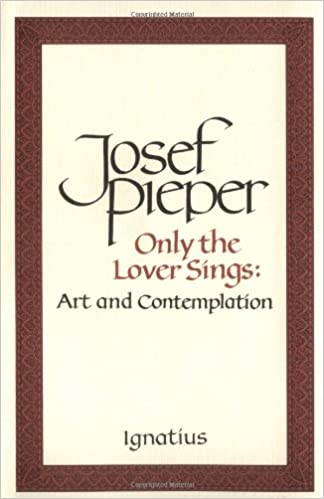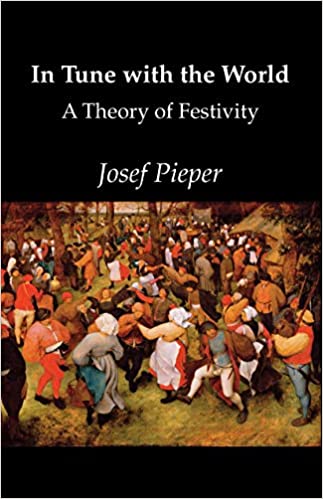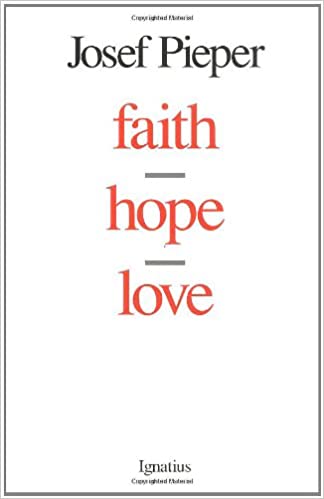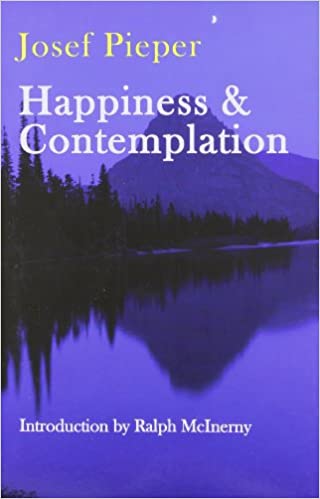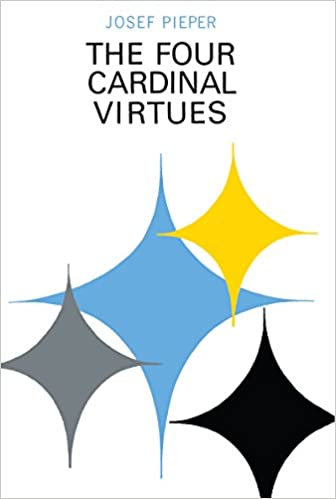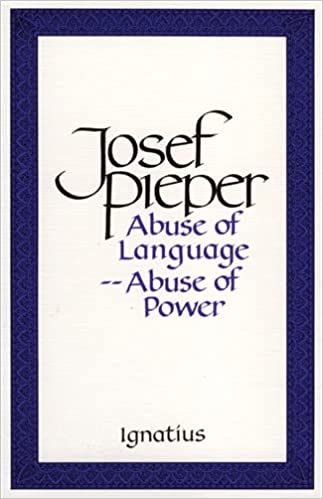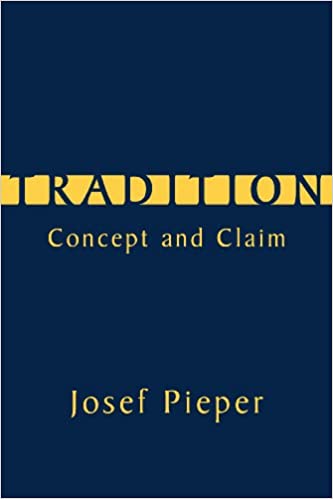Only the Lover Sings: Art and Contemplation
The popular and highly regarded Pieper speaks of the necessity for human persons to be able to contemplate and appreciate beauty to develop their full humanity. Pieper expresses succinctly that the foundation of the human person in society is leisure, free time in which one can contemplate, be receptive to being and its beauty.
More info →Leisure: The Basis of Culture
One of the most important philosophy titles published in the twentieth century, Josef Pieper's Leisure, the Basis of Culture is more significant, even more crucial, today than it was when it first appeared more than fifty years ago. This edition also includes his work The Philosophical Act. Leisure is an attitude of the mind and a condition of the soul that fosters a capacity to perceive the reality of the world. Pieper shows that the Greeks and medieval Europeans, understood the great value and importance of leisure. He also points out that religion can be born only in leisure -- a leisure that allows time for the contemplation of the nature of God. Leisure has been, and always will be, the first foundation of any culture. Pieper maintains that our bourgeois world of total labor has vanquished leisure, and issues a startling warning: Unless we regain the art of silence and insight, the ability for non-activity, unless we substitute true leisure for our hectic amusements, we will destroy our culture -- and ourselves.
More info →In Tune With The World: A Theory of Festivity
In this stimulating and still-timely study, Josef Pieper takes up a theme of paramount importance to his thinking – that festivals belong by rights among the great topics of philosophical discussion. As he develops his theory of festivity, the modern age comes under close and painful scrutiny. It is obvious that we no longer know what festivity is, namely, the celebration of existence under various symbols.
Pieper exposes the pseudo-festivals, in their harmless and their sinister forms: traditional feasts contaminated by commercialism; artificial holidays created in the interest of merchandisers; holidays by coercion, decreed by dictators the world over; festivals as military demonstrations; holidays empty of significance. And lastly we are given the apocalyptic vision of a nihilistic world which would seek its release not in festivities but in destruction.
Formulated with Pieper's customary clarity and elegance, enhanced by brilliantly chosen quotations, this is an illuminating contribution to the understanding of traditional and contemporary experience.
More info →Happiness and Contemplation
"The ultimate of human happiness is to be found in contemplation".
In offering this proposition of Thomas Aquinas to our thought, Josef Pieper uses traditional wisdom in order to throw light on present-day reality and present-day psychological problems. What, in fact, does one pursue in pursuing happiness? What, in the consensus of the wisdom of the early Greeks, of Plato and Aristotle, of the New Testament, of Augustine and Aquinas, is that condition of perfect bliss toward which all life and effort tend by nature?
In this profound and illuminating inquiry, Pieper considers the nature of contemplation, and the meaning and goal of life.
More info →Abuse of Language, Abuse of Power
One of the great Catholic philosophers of our day reflects on the way language has been abused so that, instead of being a means of communicating the truth and entering more deeply into it, and of the acquisition of wisdom, it is being used to control people and manipulate them to achieve practical ends. Reality becomes intelligible through words. Man speaks so that through naming things, what is real may become intelligible. This mediating character of language, however, is being increasingly corrupted. Tyranny, propaganda, mass-media destroy and distort words. They offer us apparent realities whose fictive character threatens to become opaque. Josef Pieper shows with energetic zeal, but also with ascetical restraint, the path out of this dangerous situation. We are constrained to see things again as they are and from the truth thus grasped, to live and to work.
More info →Tradition
“This is a profound reflection on contemporary understandings and misunderstandings of what tradition is. Pieper argues powerfully that the modern scientific situation, and the zeal for the new, do not and cannot supersede the human need of tradition if we are to orient ourselves in the world and find meaning. Pieper’s quest for the reconciliation of reason/science with tradition/revelation suggests Thomas Aquinas speaking in the language and context of our time.” – Timothy Fuller, Lloyd E. Worner Distinguished Service Professor, Colorado College
“Josef Pieper, in this lucid translation, shows that tradition is not the same as ‘traditionalism’; nor is it the mindless repetition of a past no longer understood. Rather, tradition is the handing down and the reception, generation after generation, of unchanging truths that originate vin a primal revelation. Pieper shows in a brilliant, paradigm-shifting way, how philosophy, theology, science, and the arts interact with tradition, and how a sense of unchanging sacred tradition is necessary for human community.” – Gene Edward Veith, Patrick Henry College
More info →
